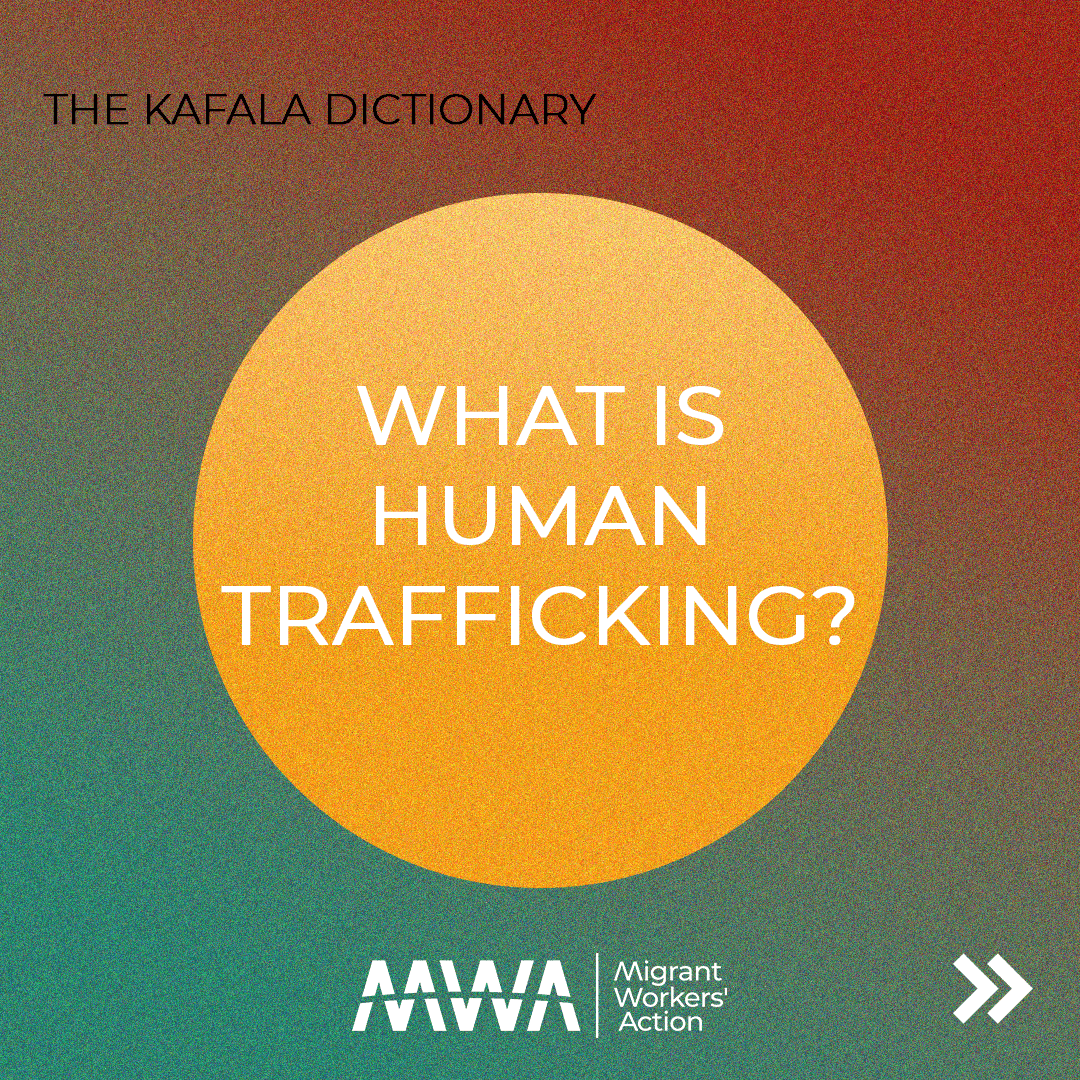Human trafficking is defined in the UN’s Palermo Protocol on Trafficking, as the recruitment, transportation, transfer, harbouring or receipt of people through force, fraud, coercion or deception, with the aim of exploiting them for profit. Men, women and children of all ages and from all backgrounds can become victims of this crime, which occurs in every region of the world.
Traffickers often use violence or fraudulent employment agencies and fake promises of education and job opportunities to trick and coerce their victims.
People don’t have to be transported across borders for trafficking to take place. Trafficking is defined by the movement of a person, and this can happen within a single country or even within a single community.
Source: United Nations Office on Drugs and Crime
Lebanon’s Kafala system, and particularly its network of recruitment agencies, both in Lebanon and in sending countries, have repeatedly used methods of deception and coercion to traffick women into the country. Promises of high salaries, good working conditions and benefits have led MDWs to agree to work in Lebanon. However, civil society organisations and community organisations have documented many cases of migrant workers being falsely promised jobs in completely different sectors and positions, such as healthcare, education and private businesses. In many countries, recruitment agencies present the women with fake work contracts, with deceiving provisions, which have no legal standing against the contract they sign upon arrival in Lebanon.


